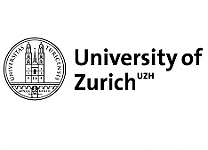Sentiment analysis on corporate sustainability reports

Challenge to overcome
Corporate sustainability reporting is a critical tool for evaluating climate and environmental performance. Yet, in practice, its value is undermined by complexity, inconsistency and the absence of verifiable standards. Reports are often lengthy and difficult to analyze manually, while current voluntary frameworks, such as the Task Force on Climate-related Financial Disclosures (TCFD) and the Task Force on Nature-related Financial Disclosures (TNFD) are applied haphazardly. As a result, investors, regulators, and civil society struggle to accurately assess corporate sustainability performance, increasing the risk of greenwashing and misinformed decisions.
To overcome these challenges, the Department of Finance at the University of Zurich has developed two AI-driven tools: ASKCLIMATE and ASKNATURE. These tools are designed to democratize access to high-quality sustainability analysis and bring greater structure and traceability to corporate sustainability disclosures. These tools can be used by the public or by professionals, e.g. investment managers. The University of Zurich is committed to provide these tools as open-source solutions to enhance transparency for all stakeholders.
Artificial Intelligence Use Case
- AskClimate
ASKCLIMATE tackles two major obstacles in AI-assisted analysis: large language model (LLM) hallucination and the difficulty of integrating domain expertise into AI workflows. LLMs often generate confident yet inaccurate statements when source data is ambiguous or missing, which can compromise decision-making in high-stakes fields like finance. Additionally, most AI systems lack mechanisms to incorporate expert knowledge systematically, making it difficult to align outputs with complex regulatory and sustainability frameworks.
ASKCLIMATE employs a pipeline-based architecture comprising four modules: report embedding, report summarization, TCFD conformity assessment, and customized question answering. Reports are segmented into text chunks and converted into vector embeddings. These embeddings are stored in a semantic database, enabling precise retrieval and grounding of outputs in the source material to reduce hallucination.
The system utilizes retrieval-augmented generation (RAG) to produce summaries across the eleven TCFD pillars and assigns each report a numerical conformity score (0–100). A key innovation is its feedback-driven prompt engineering, which incorporates expert insights to align model outputs with complex regulatory frameworks. Human evaluators further validate factual consistency and traceability.
ASKCLIMATE integrates expert knowledge at scale and minimizes manual intervention, enabling consistent, transparent, and replicable analysis of large volumes of reports. Its open-source methodology and analysis of over 1,000 reports set a new benchmark for transparency in ESG evaluation. The tool ultimately democratizes access to climate disclosure analysis, equipping investors, regulators, and the public with an efficient and explainable alternative to manual reviews or unreliable third-party ratings.
- AskNature
On the other hand, ASKNATURE addresses the insufficiency of current nature-related disclosures, even within the TNFD framework. Existing reports often lack granularity, consistency, and comparability, making it difficult to assess how corporate activities affect and depend on nature. Moreover, many disclosures remain narrative-based and are not easily quantifiable or traceable, limiting their usefulness for investors and regulators seeking actionable insights.
ASKNATURE builds on the ASKCLIMATE framework to address the shortcomings of nature-related corporate disclosures. The tool is designed around the Taskforce on Nature-related Financial Disclosures (TNFD), and it systematically evaluates corporate sustainability reports (CSRs) using a structured tree of questions aligned with TNFD's fourteen core themes.
At the core of ASKNATURE is a double materiality paradigm, which classifies disclosures by the direction of impact, company-to-nature, nature-to-company, or neutral and applies sentiment analysis to determine whether these impacts are positive or negative. A geographic analysis module further assesses whether reported actions are aligned with ecologically significant regions mentioned in the disclosures. The tool employs a Retrieval-Augmented Generation (RAG) system combined with an LLM to answer a hierarchy of TNFD-derived questions. A scoring system is used to evaluate the quality of disclosures based on specificity, enforceability, and the substance of reported commitments.
A recent analysis of the sustainability reports of Nature Action 100 (NA100) companies by ASKNATURE revealed that, while many reports referenced TNFD themes, they frequently lacked legal robustness, enforceable commitments, and alignment with tangible biodiversity outcomes. Specifically, the tool revealed discrepancies between reported corporate benefits to nature and the ongoing global biodiversity decline.
The primary value of ASKNATURE lies in its ability to objectively assess the depth, credibility, and geographic relevance of nature-related disclosures. It provides investors with a more nuanced and data-driven evaluation of environmental claims, filling the gap left by current voluntary frameworks, which often fall short in terms of legal enforceability and practical utility.
Use case key beneficiaries
☐ Relationship Managers
☒ Portfolio Managers
☒ Research teams, macroeconomists
☐ Control functions
☐ Support functions (HR, CFO, …)
☐ Other: Clients
Supporting technology
ASKCLIMATE is built on a structured pipeline that combines several advanced technologies. It employs large language models (LLMs), particularly ChatGPT, for natural language processing, summarization, and question answering. To reduce hallucinations and ground responses in source content, it integrates a Retrieval Augmented Generation (RAG) system. This approach utilizes semantic search to retrieve relevant report sections based on text embeddings generated with OpenAI's embedding model. These embeddings are stored in a vector database for efficient retrieval. Additionally, an automatic prompt engineering algorithm incorporates expert feedback to refine prompts, ensuring outputs are more accurate and aligned with domain expectations.
ASKNATURE employs analogous principles to assess nature-related corporate disclosures. Powered by GPT-4, it also employs a RAG framework to improve accuracy and reduce hallucinations. The tool includes sentiment analysis to classify the tone of environmental impacts and uses a structured "tree of questions" based on the TNFD framework to ensure comprehensive and systematic evaluation. ASKNATURE's integrated features allow the company to deliver precise, traceable insights into corporate environmental performance.
Benefits of AI use case for financial services sector
Together, ASKCLIMATE and ASKNATURE provide a more automated, transparent, and consistent assessment of sustainability performance than traditional manual analysis or third-party ESG ratings. They support a broader community of users, including investors, researchers, and policymakers. This support takes the the form of accessible insights from opaque disclosures and advocacy for better regulation and standardization in the field.
